Five Reasons Your Home is an AWFUL Investment
Today, I will explore a touchy subject and explain why buying a home is a terrible investment. Before we go into why, let’s define how the dictionary defines an “investment”. According to the Merriam-Webster dictionary, it is “the outlay of money usually for income or profit”. To paraphrase, an investment is anything you put money into and expect to get more in return than what you put in.
At this point you may be thinking that a house that appreciates overtime matches the definition of investment, but is it a good one? I will give you 5 reasons why your home is a terrible investment:
1) You Have Dead Equity
Let’s say you have $75,000 or $100,000 saved up for a down payment on a $350,000 or $400,000 house. You hand it over to the bank for the opportunity to move into a house - a non-performing asset that does not give you a return every month. That money is trapped and you can’t do anything with it. You could use that same money and put it into an apartment and get cashflow every month.
2) You Are Sinking Money Month over Month
After you tie up all this money you saved up, you are then obligated to send the lender a mortgage. Then, you need to pay taxes, insurance, and maintenance costs, which always go up. All this is aside from the fact you need to also spend hours mowing the lawn, trimming trees or shoveling snow. In a rental, the landlord handles all that so you don’t have to.
3) It Is A Depreciating Asset in Need of Updating
As the property ages, your home requires updating as your tastes change. I’m sure many of you don’t like to see those kitchen cabinets and shag carpets from the ’60s in any house, let alone in yours! For example, generally speaking, people today like open floor plan with solid color formica or granite countertops and either stainless steel or black appliances. When tastes change, those will be out of style and the home will need to be renovated again. In a rental property, a good landlord will often update the units with modern colors, flooring and kitchens.
4) No Control of the Value
The value of your home is directly tied to the surrounding homes. If the properties go up in value because Amazon just happens to open a fulfillment center 10 minutes away, that’s great! But, if a hospital nearby shuts down, and the neighborhood takes a hit, your home’s value will get crushed. Because the housing market fluctuates unpredictably, you can never count on your home appreciating. This means that you could be upside-down on the mortgage when you go to sell it. Perhaps you lose your job and you want to pull out some equity only to find out that you have none because the market value has gone down. You just don’t know. Think about it: If a home were such a great investment, why did so many people walk away from their houses in 2008?
5) You Are Stuck in One Place
The days when you would go work for a company for 20 years and turn that job into a lifetime career are gone. If you lose your job or you want to take an opportunity in another state, you can’t just move. You need to unload the house and possibly take a loss if you are paying the mortgage while paying for the place you are going to. With a rental property you are much more flexible, not only because there are management companies that can do the job for you, but because your emotions are not so attached to your place.
I know that both owning a home and renting an apartment has money coming out of your pocket. Both give you one thing in return: A place to live. I think of it as an expense just as you do with food, clothing, and fuel for my car, but definitely not as an investment. Making a profit on home ownership is so rare that I wouldn’t even call it an investment. It may turn out well, but for the most part, only the banks win.
I’m not saying owning a home is bad. I’m just saying there is more to owning than what the “American Dream” used to be. Many people find happiness and enjoyment in doing home improvements, gardening or even mowing their lawns. They are happy to stake their claim on their own corner of Earth. If you don't care about investing in your future - outside of your IRA, trust or savings account - then you should buy a home. But if you are looking to build financial freedom, take all your cash and invest in properties that get you cashflow.
Anyway, do you think homeownership is a generational phenomenon, due to life experience or the age gap? Do you agree? Let me know in the comments. I’d love to hear from you.
If you liked this content, go ahead and give it a thumbs up and share it. Also, check out the Bulletproof Cashflow podcast on iTunes or Stitcher, and subscribe to our YouTube channel. We are working on getting new content out all the time to help you build your success in the world of multifamily.
Be great.
-
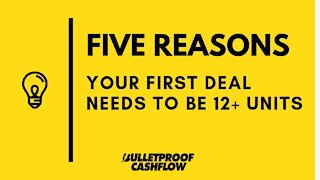 6:44
6:44
bulletproofcashflow
3 years agoFIVE REASONS Your First Deal Needs to be 12+ Units
96 -
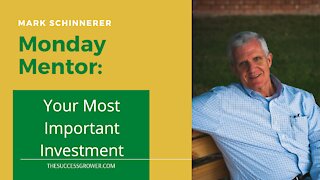 9:46
9:46
markschinnerer
3 years agoYour Most Important Investment
253 -
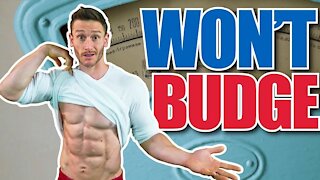 14:52
14:52
ThomasDeLauer
3 years ago9 Reasons Your Ketosis Weight Loss STOPPED
3702 -
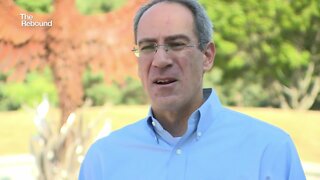 2:42
2:42
WGBA
3 years agoProtecting your college tuition investment
7 -
 3:36
3:36
Cat And Dog Tips
3 years ago5 Good Reasons To Check Your Dog's Mouth Daily
81 -
 1:39
1:39
NowYouKnowEnglish
3 years agoWhat Are The Possible Reasons For Your Excessive Hunger?
1.97K -
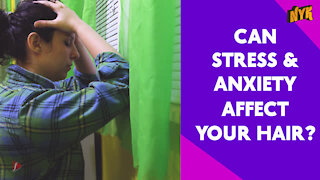 1:51
1:51
NowYouKnowEnglish
3 years agoTop 3 Most Common Reasons Your Hair Is Not Growing Fast *
4.88K -
 1:52
1:52
NowYouKnowEnglish
3 years agoTop 3 Most Common Reasons Your Hair Is Not Growing Fast
20 -
 0:57
0:57
CoreyDFrith
3 years ago5 Reasons to Sell Your House This Holiday Season
21 -
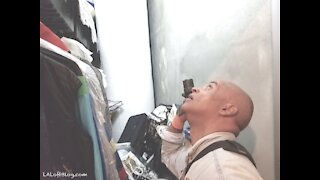 4:54
4:54
Corey Chambers
3 years ago11 Reasons Why Home Sellers Fail Their Inspections
87